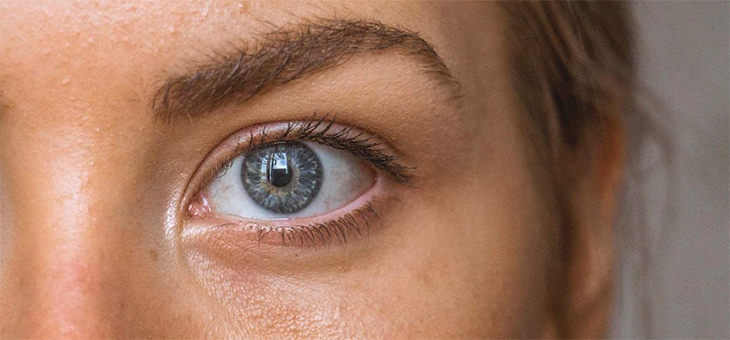Skincare can be a convoluted puzzle.
Between the myriad of ingredients, the marketing and the volume of choice, there’s a lot to consider.
But if it’s anti-ageing treatments you’re after, there’s one ingredient many dermatologists call “the gold standard”: retinoids.
“The way I personally think of it is that it’s like a hierarchy,” cosmetic chemist Michelle Wong from Lab Muffin Beauty Science says.
“You have a sunscreen as preventative, and then you have a retinol, and if you still want more, you work your way down. Vitamin C is probably next on my list.”
Known for their influence on acne and collagen production, there is “strong scientific evidence” behind retinoids and their impact on the skin.
But if skincare labels aren’t confusing enough already, you’ve probably seen many iterations of retinoids listed on them – perhaps without even realising.
So what do they all mean?
Retinol, tretinoin, retinaldehyde …
While retinol is probably the most recognisable ingredient on the shelf, it belongs to a wider family of vitamin A-based ingredients.
“The group of ingredients are called retinoids, with the most bioactive form being retinoic acid,” dermatologist Cara McDonald, director of Complete Skin Specialists, explains.
“All retinoids exert influence on the skin … but within the cell they need to be converted to retinoic acid via oxidation, to exert their effects,” Dr McDonald says.
The scientific studies showing the most significant changes in skin biology have been done with retinoic acid, also known as tretinoin.
Tretinoin is a prescription-only topical medication, and has a powerful influence on the skin.
“There is strong scientific evidence that tretinoin can reverse some signs of ageing, by slowing down the breakdown of collagen in our skin, and stimulating the production of new collagen,” Dr McDonald says.
She points to one four-year study that showed an increase in collagen production in the experimental group using tretinoin.
“The control side actually lost collagen over four years,” she says.
“So we know it works.”
Along with stimulating collagen production, tretinoin speeds up cell turnover in the outermost layer of the skin – the epidermis – which gives us luminosity and brightness.
There is also strong evidence that tretinoin is useful in treating acne, and fading dark spots.
“It’s the one ingredient that we have the most science behind for all factors of ageing. It is the gold standard in ageing cosmeceutical ingredients,” Dr McDonald says.
Because tretinoin, and indeed all retinoids, have such a strong impact on the skin, side-effects like redness and peeling can be experienced.
So does that mean tretinoin is the only way?
Not necessarily.
While prescription-only tretinoin might be the most effective, its derivatives are still powerful – just a little weaker in concentration.
“Retinaldehyde and retinol are one and two steps back from tretinoin, respectively,” Dr McDonald explains.
“You’re not going to get as direct an impact and as much reaction as you do from tretinoin, but it’s less irritating, and depending on the concentration and the quality, you will get the same end result once it’s converted to retinoic acid.”
Dr Wong says that, “if it’s an option on the table, then the prescription version is probably going to be more reliable”.
“Otherwise, I’d usually recommend a product that’s had lots of reviews, or they have before and afters, or that’s from a reputable brand [that] probably invests in research,” she says.
“A boring brand that’s got a good reputation is best.”
How should you use retinoids?
Retinoids are a powerful product, and may not be tolerated every day in all people.
When you first start using a retinoid, you can expect some dryness or irritation in the first few weeks while your skin’s getting used to it.
But that doesn’t mean it’s bad for your skin – it just means that you may need to build up the concentration, amount and contact time, slowly.
“If you overuse it or go too fast, you’ll have problems,” Dr McDonald says.
“All retinoids do have these positive effects on their skin, and it’s typical to have side-effects when you start using them. But your skin will get used to it over time.”
She suggests starting retinoid use with short contact application – that means popping the product on your skin like a mask for a few minutes, before washing it off.
“Start maybe every second night, so your skin changes will happen more gradually,” she says.
Dr Wong suggests starting with a lower concentration retinol, or a cream formulation.
“It’s important to note that retinoids are not recommended for pregnant or breastfeeding women,” she adds.
And, if you have specific skin concerns or are unsure whether retinoid will be right for you, you should see your GP.
While retinoids are, by all accounts, a “gold standard” ingredient, there are a whole lot of other active ingredients out there, too.
 © 2020 Australian Broadcasting Corporation. All rights reserved.
© 2020 Australian Broadcasting Corporation. All rights reserved.
ABC Content Disclaimer

